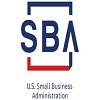A Quick Guide To FDA Establishment Registration
09/18/2020
Category: Other Blogs
FDA stands for the Food and Drug Administration, a government agency responsible for food safety, dietary supplements, human drugs, vaccines, blood products and other biologics, medical devices, radiation-emitting electronics, cosmetics, veterinary products and tobacco products sold or produced in the United States. The FDA also inspects and enforces those industry-related regulations.
Why is an FDA establishment registration important?
Organizations producing, repackaging or re-labelling products in the industries above must register with the FDA, except for cosmetics, where registration is voluntary.
The registration process varies depending on the industry. Generally, it involves an annual registration in which organizations are required to list all drugs being produced, prepared, propagated, compounded or processed for commercial distribution in the United States. The results of inspections for registered FDA organizations can be found on the FDA website.
Owners or managers of business locations (also known as establishments or facilities) that are involved in the manufacture and sale of medical devices intended for use in the United States (U.S.) must register with the FDA annually. This procedure is known as the Registration of Establishments.
Congress allowed the FDA to collect an annual fee for the registration of system establishments. A detailed list of the types of system establishments required to register and pay the price can be found at the section Who must register, list and pay the fee. The registration fee for the company does not count for a discounted rate for small businesses.
Most establishments that are required to register with FDA must also list the devices that are produced there and the activities that are carried out on those devices.
Registration and listing provide the FDA with the location of the establishments for medical devices and the devices produced at those establishments. Knowing where things are manufactured enhances the capacity of the nation to prepare for and respond to emergencies in public health.
Different areas that require FDA Establishment Registration
- Veterinary and animal: Registration with the FDA is required for domestic and foreign establishments that manufacture, repack or re-label animal drug products in the USA. Manufacturers, repackers or re-labellers of domestic and foreign drugs are also required to list all of their commercially marketed drug products. This process is done in conjunction with the process of recording human drugs.
- Cosmetics: The Voluntary Cosmetic Registration Program (VCRP) is an FDA post-market reporting system for the use of cosmetic products in commercial distribution in the United States by manufacturers, packers, and distributors.
- Drugs: Registration with the FDA is required for domestic and foreign establishments that manufacture, repack, or re-label drug products in the USA. Manufacturers, repackers or re-labellers of domestic and international drugs are also expected to list all of their commercially distributed drug products. This information helps the FDA maintain a catalogue of all drugs distributed commercially in the United States.
- Food: The facility must be registered with the FDA by owners, operators, or agents in charge of domestic or foreign facilities that manufacture/process, pack, or hold food for consumption in the U.S.
- Medical devices: Owners or managers of business locations (also known as establishments or facilities) that are involved in the manufacture and sale of medical devices intended for use in the United States (U.S.) must register with the FDA annually. This process is known as the registration of establishments.
Registration with the FDA is required for domestic and foreign establishments that produce, repack, or re-label drugs and biologic products, including vaccines. Manufacturers, repackers, or re-labellers of domestic and international drugs and biologics are also expected to list all their commercially marketed drugs and biologics. This database helps the FDA maintain a list of all medications and biologics sold widely in the United States.


